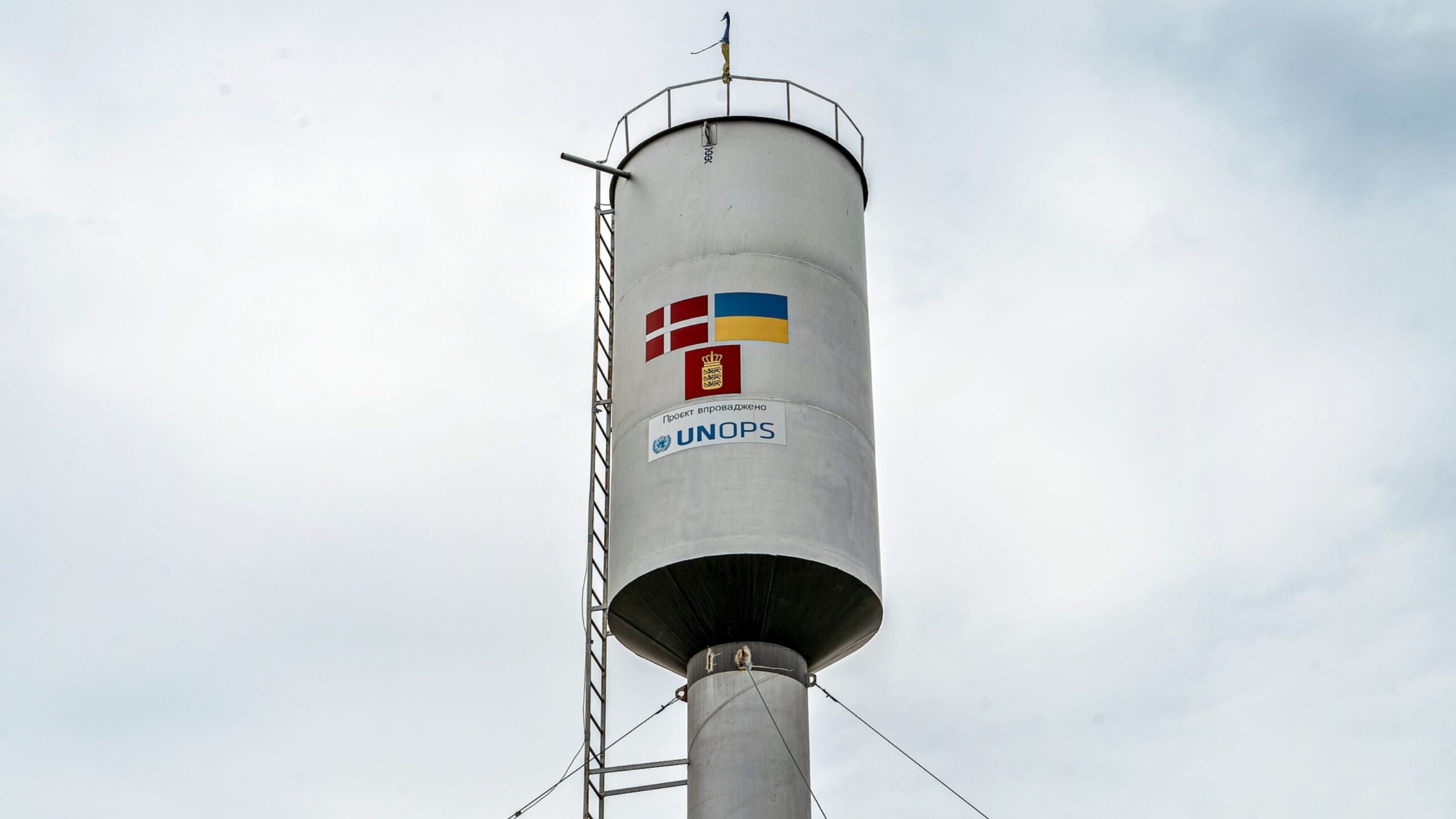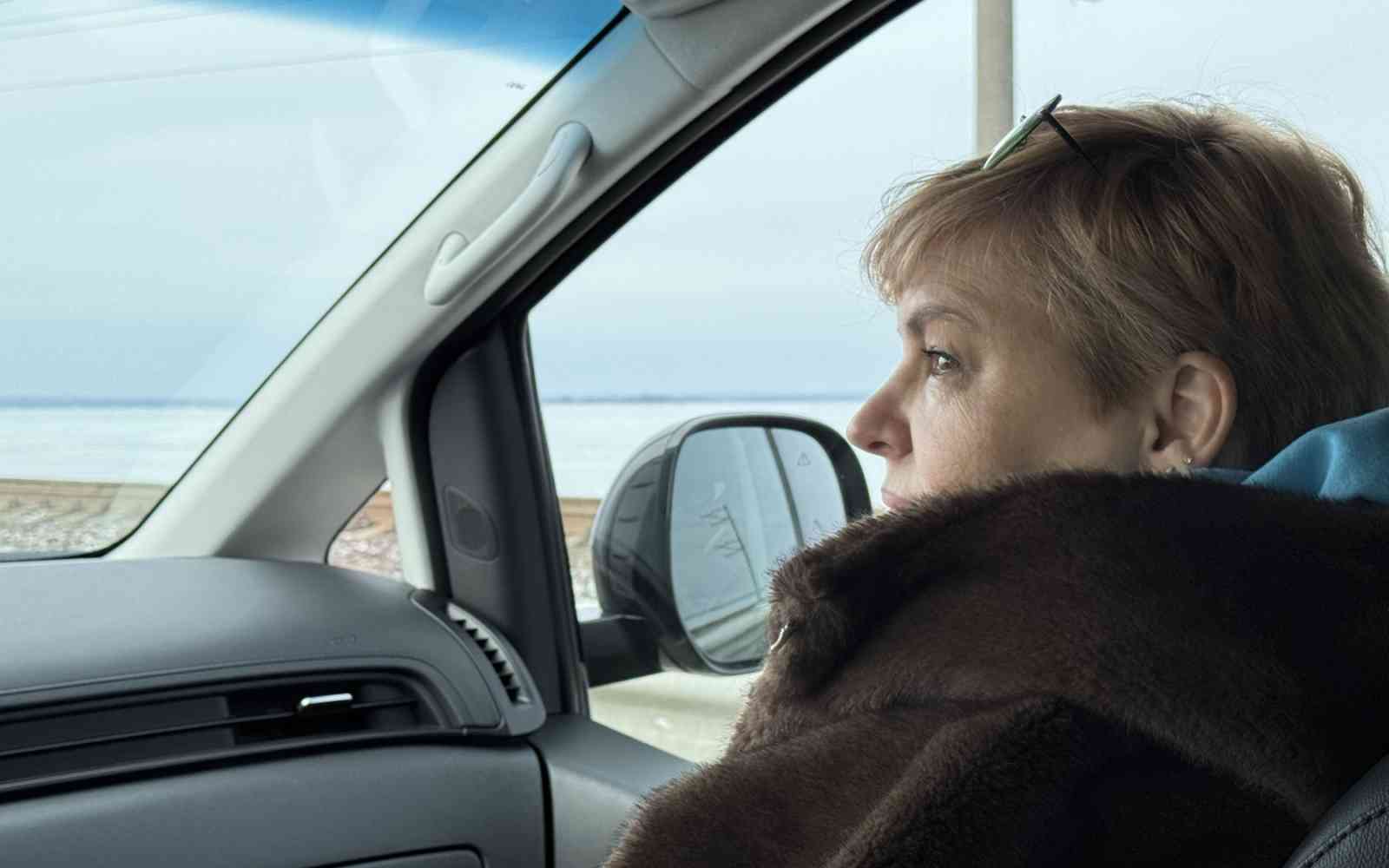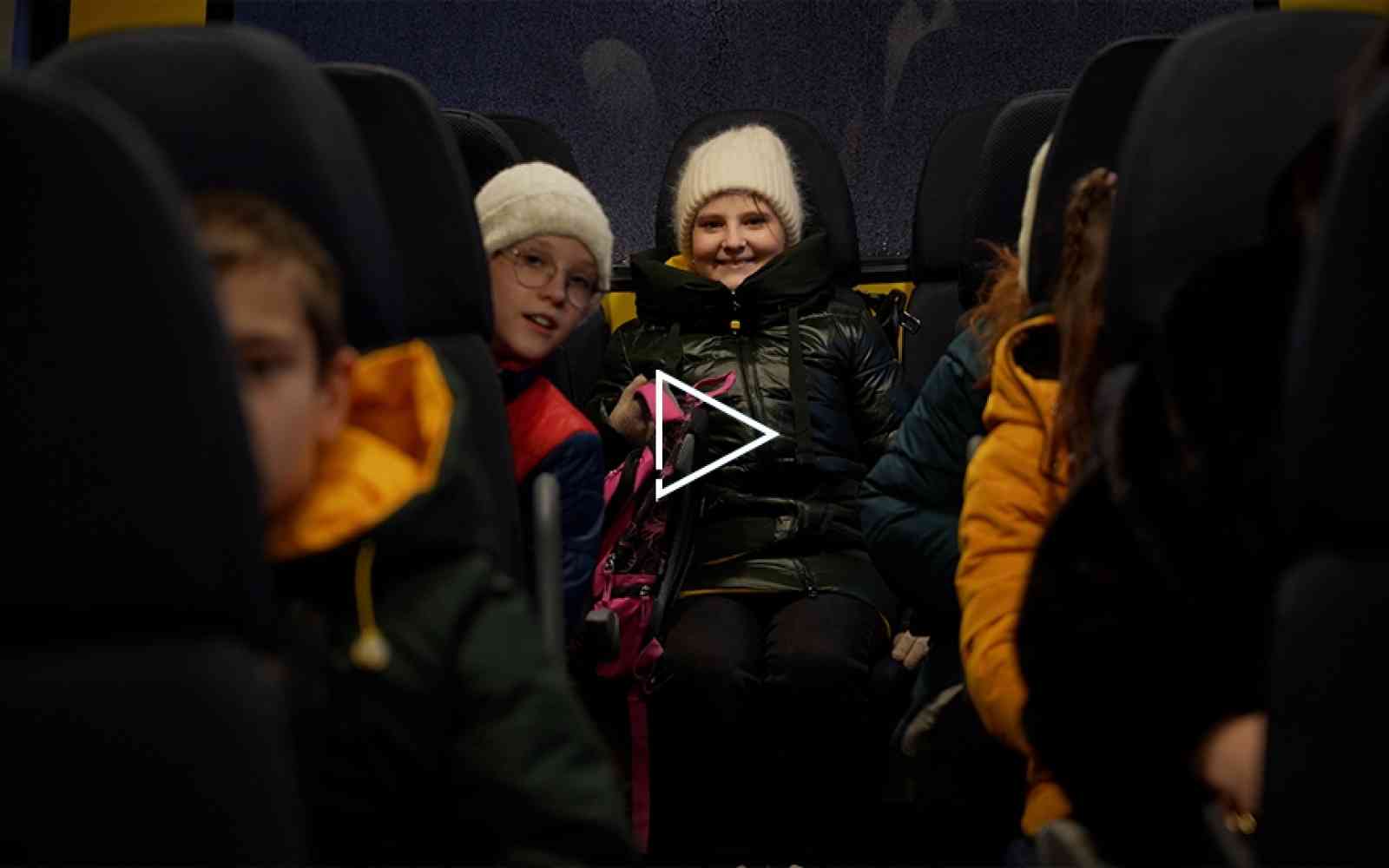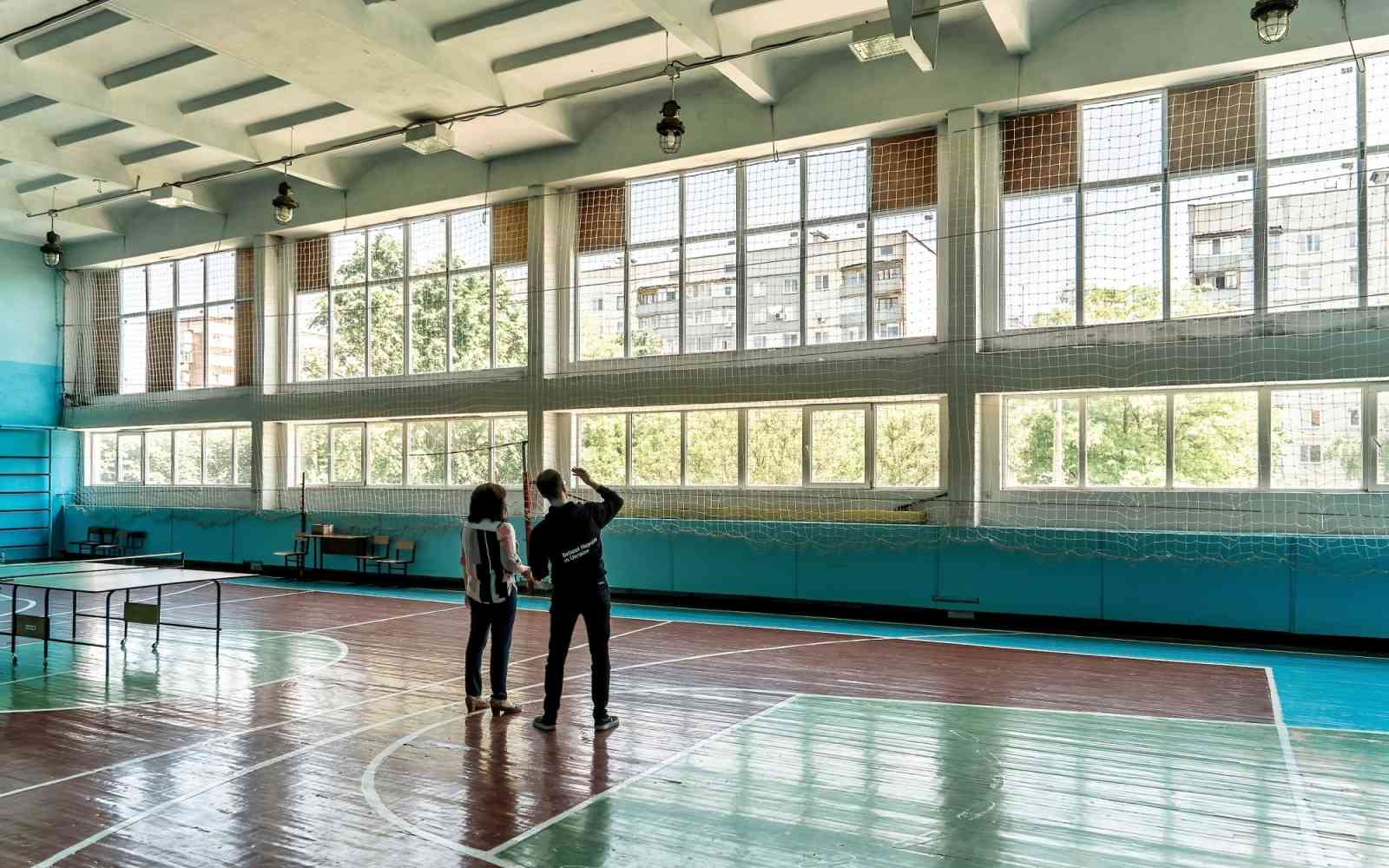The United Nations Office for Project Services (UNOPS)

Building resilience: Stories of recovery from Mykolaiv
Since late 2022, UNOPS and the government of Denmark have worked together to support Mykolaiv and nearby areas, a region heavily affected by the war in Ukraine.
From firefighting equipment and clean water systems to modern waste trucks and public transport, the assistance has helped restore essential services and improve daily life. But while progress is clear, many challenges remain on the path to recovery.
Waste management without pause
Throughout the early days of Russia’s full scale invasion of Ukraine, Mykolaiv was effectively a frontline city, regularly exposed to artillery strikes and aerial attacks. And while drones and missiles have remained a daily threat to local communities since Russian forces were pushed back in late 2022, life, for the most part, has seemingly returned to normal. Traffic jams, busy restaurants and families walking in parks show that people have returned in large numbers.
Mykolaivkomuntrans, Mykolaiv’ main solid waste removal provider, serves three of the city’s four districts. Despite the conflict, the company never stopped working. From the earliest days of the full-scale invasion, it adapted quickly to keep the city clean and functioning.
[...] the quantity of daily waste has returned to 2021 levels. We have more work than ever now, because we have an additional population that arrived either from Kherson, from areas close to the front line, or from villages under [Russian] occupation.

Most of the company’s older vehicles were made in Belarus, and sourcing spare parts had become nearly impossible. To support critical city services, Denmark partnered with UNOPS to supply new garbage trucks, dump trucks, fuel trucks and excavators.
“The city is even cleaner now than it was before the invasion,” Yulia adds. “With modern vehicles, our work is much more efficient. We can clean up unauthorized dumpsites more effectively and maintain our fleet without worry.”


While this support has made a significant difference, longer-term improvements are still needed. There are plans for a waste sorting facility to be constructed in the future.
Keeping the city moving
Another municipal service provider, Mykolaivpastrans, received new equipment through support from the government of Denmark and UNOPS. The company operates four bus routes across Mykolaiv. While the number may seem small, these routes play a vital role in connecting remote areas of the city, including neighbourhoods that previously had no public transport access.
One such area is Varvarivka, a historic district located on the far side of the Pivdennyi Buh river. With new vehicles in operation, residents of Varvarivka now have reliable and safe access to the rest of the city for the first time. This is a critical step in restoring mobility and inclusion in the city’s recovery.
Thanks to the buses from UNOPS, we have managed to increase the number of vehicles on our routes by 40 per cent.

“We’re ready to launch new routes as soon as we get more vehicles. Higher salaries and solid internship programmes have resolved our staffing needs. We just need more buses to serve more people.”
Each bus now features GPS tracking to help passengers plan their journeys. Air conditioning ensures a safer, more comfortable ride for both drivers and passengers throughout the year.
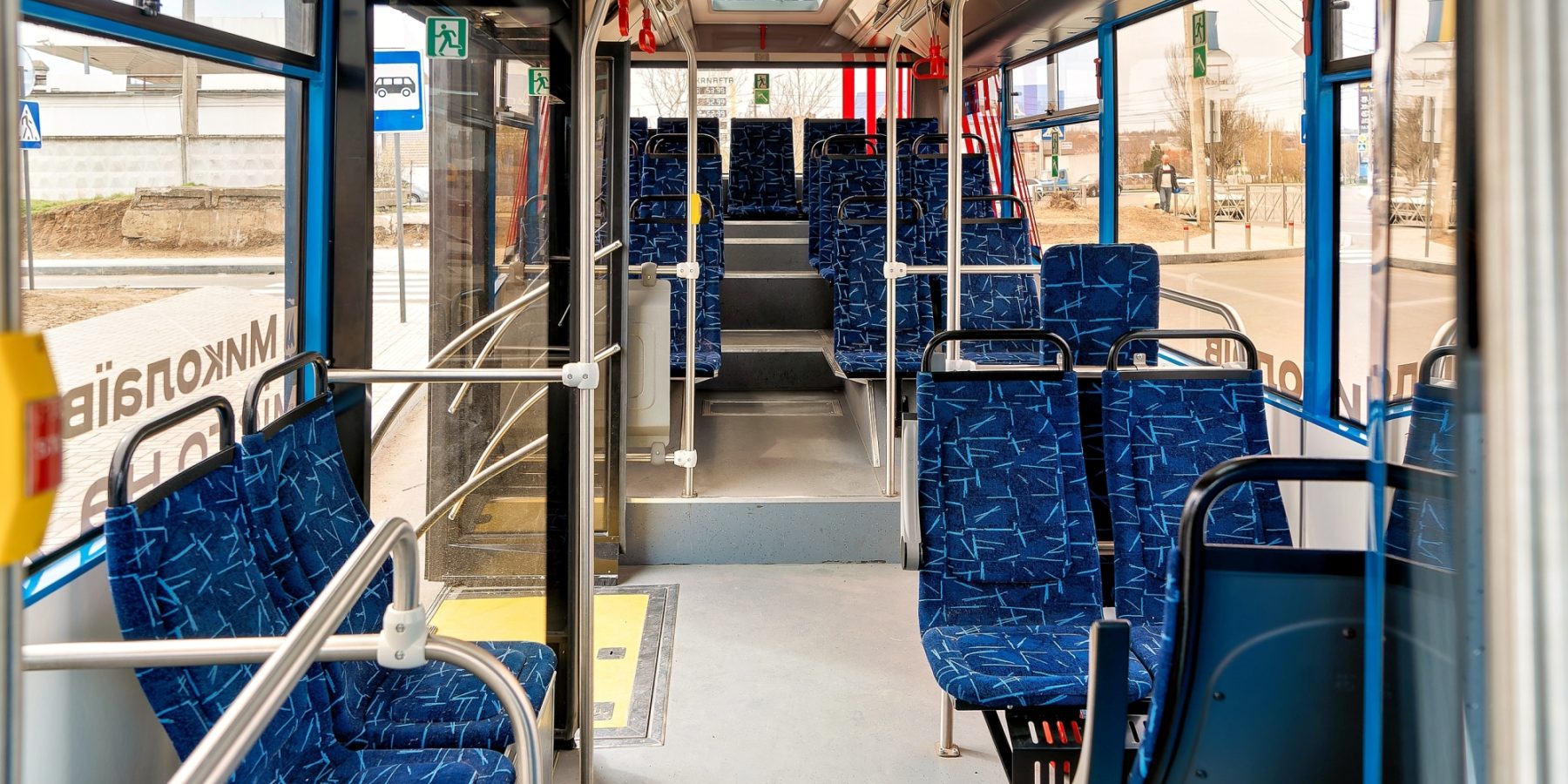

Protecting fields and forests
Wildfires are a recurring threat in Ukraine, particularly during the dry spring and autumn months when fields and forests are highly vulnerable. In the Mykolaiv region alone, 84,000 hectares (close to 120,000 football pitches) of forest are managed by the State Company Forests of Ukraine, placing significant strain on local firefighting teams.
To support their efforts, UNOPS, with funding from Denmark, delivered specialized fire modules designed to increase mobility and efficiency. These compact units can be mounted on pickup trucks or trailers, providing a flexible and rapid response option for firefighting teams operating in difficult terrain.

I personally used the modules provided by UNOPS 15 times in 2024. They can fit in the back of a truck. They are simple to use, and one person alone can handle it.
In addition to protecting forested areas, Forests of Ukraine also responds to agricultural fires and has begun expanding its coverage to parts of the Odessa and Kherson regions. The fire modules provided by UNOPS have not only saved numerous human lives and livelihoods but also preserved large areas of natural habitat across the region.
Improving daily life with reliable water access
Access to clean water remains an ongoing challenge in Mykolaiv and nearby areas. Since April 2022, when the pipeline supplying Mykolaiv City with water from the Dnipro River was damaged, residents have had to rely on salty tap water drawn from the Pivdennyi Buh estuary. In many nearby villages, groundwater wells exist, but without functioning water towers, there is not enough pressure to distribute water effectively.
To help improve the situation, the government of Denmark partnered with UNOPS to procure new water towers for affected villages. One of these, Lymany in the Halytsynove community, had an existing water tower that was damaged beyond repair in 2022. The new installation now ensures consistent water access for local residents.

Our community has received various water towers from multiple donors, but the water tower from UNOPS and Denmark ticks all the boxes. 99.9 per cent perfect.
The Halytsynove community relies on 33 wells and 12 functioning water towers.
“Such water towers are highly effective,” explains Ivanna. “They maintain the necessary pressure even during power outages, meaning people still have access to water for some time after electricity cuts.”
However, many of the towers listed as “operational” are, in reality, severely damaged and either extremely difficult or impossible to repair.
In Lymany, access to clean water has significantly improved. This support from the government of Denmark and UNOPS is helping to restore daily life and bring families back to their homes.
“People keep returning to their homes, including families with children and young people,” says Ivanna. “We have the capacity to install water towers ourselves. Any additional towers can seriously improve the situation in the community.”
About our work in southern Ukraine
Working closely with the local government, UNOPS is helping to repair homes, roads, schools and improve waste management, water systems, and public transport. The project also supports the installation of safety systems and the revitalization of community spaces, helping to lay the foundations for long-term recovery. The goal is not only to rebuild physical infrastructure, but also to strengthen community resilience and support people to regain stability in their daily lives.








